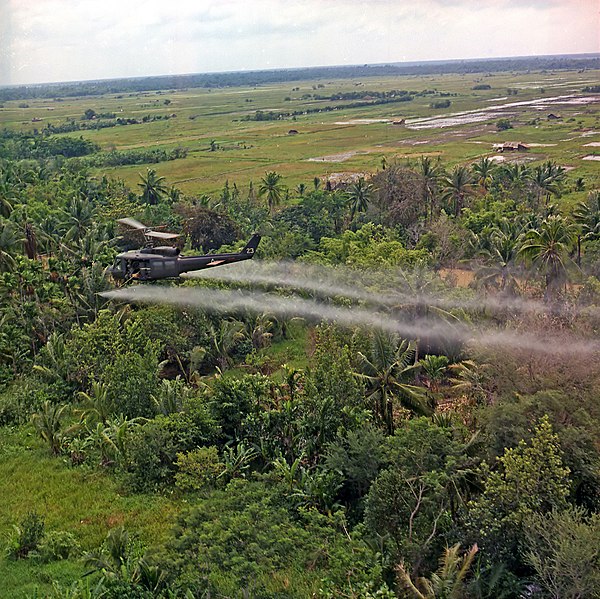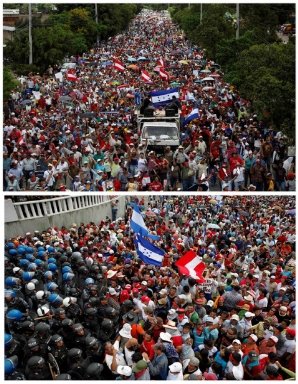US imperialism
Muntadar al-Zaidi released from jail -- Celebrate with `Sock and Awe'
September 15, 2009 -- BBC -- The Iraqi man who threw his shoes at former US President George W Bush, has been released from jail in Baghdad, his brother has told the BBC.
Muntadar al-Zaidi's act of protest made him a hero in large parts of the Arab world and beyond.
Hypocrisy over Cuba’s `political prisoners'

By Tim Anderson
How US warmongers exploited the 9/11 terrorist attacks

By Norm Dixon
[This article was first published on September 11, 2002, on the first anniversary of the September 11, 2001, terrorist attacks in New York and Washington. Its observations remain relevant to this day.]
* * *
In the week before the first anniversary of the devastating September 11, 2001, terrorist attacks in New York and Washington, TV networks aired a seemingly never-ending string of ``special events'' featuring ``exclusive'' or ``never before seen'' footage of the collapse of the twin towers of the World Trade Center (WTC) and its aftermath. People around the world again experienced the horror, anger and tragedy of that terrible day, when almost 3000 working people were murdered.
Culminating on the anniversary of the day itself, thousands of journalists and TV presenters from across the globe will converge at ``ground zero'' in New York for ``remembrance and reflection''. Solemn ceremonies will be telecast and patriotic speeches by top US politicians broadcast, restating Washington's determination to pursue its ``war on terrorism''.
Interview with Honduras resistance leader: `The US is sustaining the coup'

During an August 17-19, 2009, international seminar on the economic crisis hosted by the Party of Liberty and Socialism in Sao Paolo, Brazil, Green Left Weekly/Links International Journal of Socialist Renewal journalists Kiraz Janicke and Federico Fuentes, together with journalists from Marea Socialista (Venezuela) and Alternativa Socialista (Argentina), were able to interview Gilberto Rios from the international relations commission of the National Popular Resistance Front against the Coup about the growing resistance movement against the US backed coup which ousted the democratically elected president of Honduras, Manuel Zelaya, on June 28.
For people to people solidarity with Vietnam

By Peter Boyle
September 1, 2009 -- There has been a lot of media coverage in Australia around the August 31 return of the remains of the last two Australian armed forces personnel – Canberra bomber pilots – who were missing in action in the Vietnam War. But none of the articles put this in the context of the death and damage inflicted on the Vietnamese people by the United States and its ally Australia.
Operating as part of the US Air Force's 35th Tactical Fighter Wing, Royal Australian Air Force (RAAF) Canberra bombers flew 6% of the wing's sorties but inflicted 16% of the damage. Overall, 11,963 sorties were flown by the Canberra bombers in Vietnam and 76,389 bombs were dropped. Two Canberra bombers were lost in the process.
Total Australian military casualties in the Vietnam War were 521 killed and 2398 wounded, but the numerous high-altitude bombing raids carried out by Australia's Canberra bombers alone would have inflicted much higher casualties.
Industrial action for peace: The Communist Party of Australia and antiwar activity before 1960
Woodstock 40 years ago: Country Joe McDonald's and Jimi Hendrix's antiwar classics
40 years ago -- from August 15 to August 18, 1969 -- hundreds of thousands of young people gathered for three days of ``peace, love and music''. In the midst of the mass movement against the Vietnam War and the youth radicalisation it unleashed, oppostion to US imperialism's slaughter in Vietnam was personified by the performances of Country Joe McDonald's ``Feel Like I'm Fixin' to Die' Rag'' and Jimi Hendrix's searing anti-patriotic ``Star-Spangled banner'' (below, press ``Read more'' to watch).
Vietnam: Chemical companies, US authorities knew the dangers of Agent Orange

By Jon Dillingham
Thanh Nien -- August 10, 2009, was the first Orange Day organised in Vietnam –- not only to be remembered by victims of Agent Orange but to mark Vietnam's common pain. Those responsible for exposing Vietnamese citizens and US troops to toxic defoliants kept silent about known health implications, a review of documents finds.
US chemical companies that made Agent Orange and the government and military authorities who ordered its spraying on Vietnam knew the human health toll it could take, according to official and unofficial documents detailing the history of the deadly defoliant.
A review of the documents related to the use of Agent Orange –- a dioxin-laden herbicide -– in Vietnam, including decades-old declassified papers from the companies that manufactured it and the government and military that used it, provides compelling evidence that those in charge also concealed evidence of the devastating effects it could have on people.
Hillary Clinton in Africa: Promoting US corporate and military interests

By Firoze Manji
August 6, 2009 -- International media attention is focused on the August 3-14 visit of the US Secretary of State, Hillary Clinton, to seven countries in Africa. Judging by the behaviour of representatives of many African governments, there are great expectations that this visit –- following so closely after US President Barack Obama's two earlier visits to Egypt and Ghana this year -– holds out vast hope for Africa.
But what is the significance of Clinton’s visit? Does it really hold out hope for Africa? There are three dimensions to this visit: The African Growth and Opportunity Act (AGOA); oil and natural resource exploitation; and security.
Honduras coup: Dress rehearsal for imperial coups across Latin America

By Felipe Stuart Cournoyer
August 8, 2009 -- The people of Honduras have now suffered more than 40 days of military rule. The generals’ June 28 coup, crudely re-packaged in constitutional guise, ousted the country’s elected government and unleashed severe, targeted and relentless repression.
Grassroots protests have matched the regime in endurance and outmatched it in political support within the country and internationally. Its scope and duration is unprecedented in Honduran history. Popular resistance is the main factor affecting the international forces attempting to shape the outcome of the crisis. It weighs heavily on the minds of the coup’s authors and their international backers.

Call from the National Front against the Coup d'Etat in Honduras to the worldwide working class
August 3, 2009 -- Tegucigalpa -- June 28 of the this year when the Honduran population was preparing to participate in a popular opinion poll on ... whether or not to convoke a Constitutional Assembly, thousands of soldiers kidnapped the constitutional president of the republic, Manuel Zelaya Rosales, and they expelled him to the neighbouring country of Costa Rica; they occupied the Presidential House; they violently closed all of the independent radio and television stations; they persecuted all the functionaries of the government and they implanted a state of siege in the whole country.